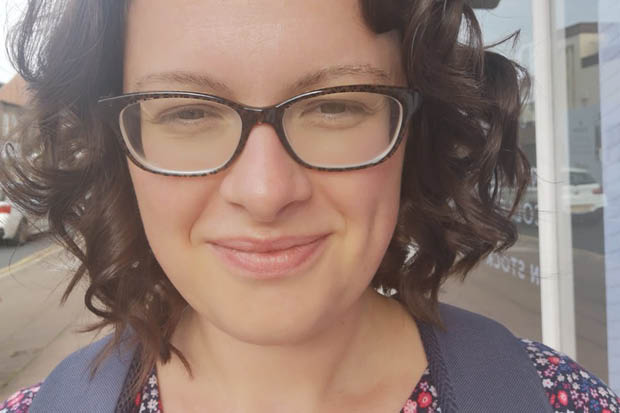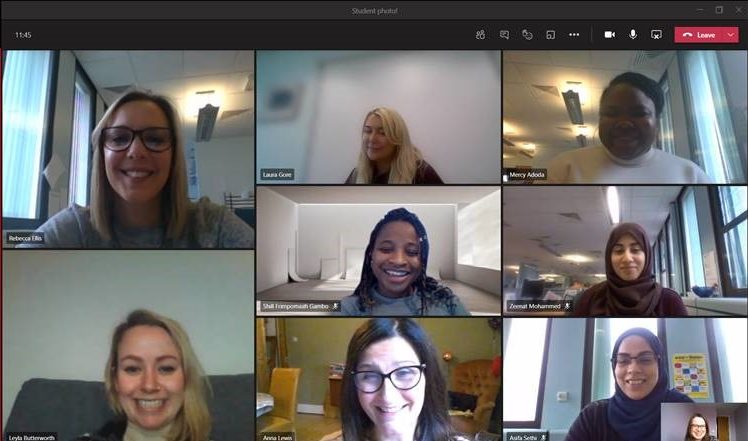Philippa Shoesmith qualified as a social worker in 2008. She has 9 years’ experience as a practice educator and was a finalist in this category in the 2015 Social Worker of the Year Awards.
Here, as Workforce Development Manager in Stockport, she shares the local authority’s journey to provide the best possible experience of digital placements to students and their commitment to the future social workers of their communities.

Stockport’s model of practice is restorative practice. A critical element of this is that we believe that change, learning and growth happens in the context of relationships. Within the training room we seek to 'walk the talk'. We model what it is to be restorative to enable our workforce, colleagues and students to 'feel' what we mean by working relationally.
In March 2020 we were all told to ‘stay home, save lives’. It was in this moment we were all confronted with the biggest shift in working practices of our careers. The reality was that our students were going to train as social workers in relative isolation. How would they know what it feels like to be restorative? How would they adopt the ethos of restorative approaches with families, their colleagues and our partners?
Below is a summary of the steps we took to ensure we maintain our model of practice.
1. Changing how we train and support students
For those who had already started placement by March 2020, we already knew them. They had attended a 2 week induction, they had been observed by their practice educators and had spent time getting to know their teams. As a result, a lot of ‘assessment’ had already happened in traditional ways, which felt somewhat ‘safe’. It was possible for them to complete the later part of a final placement in a less traditional way and still be confident in their practice.
This felt different when faced with the prospect of new students starting placement. Step Up to Social Work students were ready to start their adult placements as the first lockdown happened. Not surprisingly, the adult settings were not able to prioritise induction and training of students. We were faced with the dawning reality that the way we train and support students and newly-qualified staff would likely need to change significantly.
Through the Step Up partnership, we thought about how to ‘fill the gaps’ of learning for those completing a predominantly digital first placement. We spoke about the experience of the first visit and the need to see, observe and feel what this is like. Within this Step Up group, we commissioned a day of training with Geese Theatre and Harry Ferguson to bring this to life through dramatics. It was called ‘knocking at the door’. This day of training received outstanding feedback from students and practice educators who attended and, as a result, we have commissioned a further day for our students and practice educators in Stockport.
2. Generating a new enthusiasm and confidence in practice education
Practice educators had no experience of supporting students in a predominantly digital way. As we explored who would be able to support a student, our practice educators needed clarity about what this would now look like. These social workers were already exhausted from adjusting to working with the additional pressures of a pandemic and the isolation of being at home. How would we generate a new enthusiasm and confidence in practice education?
As part of the Greater Manchester Social Work Academy, we chose to confront this challenge by bringing together our practice educators from across the region for our first digital practice educator conference in October 2020. Many of us were only novices when using technology like Microsoft Teams which meant that this task took us far out of our comfort zones.
The conference was a great success and acted as a statement of solidarity, with over 140 practice educators in attendance across the partnership. We continue to meet and share thoughts or ideas about how to support students and practice educators, and to work through the obstacles we face. This support network has been invaluable for me as the lead for practice education in the Stockport family.
3. Creating a virtual community

It was going to be a challenge to build a supportive community whilst unable to meet in person. We have found our offer of support has grown organically through digital discussions with students and practice educators. Students are supervised digitally and having observed many of these in the role of practice education mentor, I have been astounded at the quality and innovation shown. For example, sharing screens to collaboratively work through a reflective discussion together.
Practice educators are meeting every 2 months with a check-in and workshops and, for students, we meet every 3 weeks for a check-in. This follows principles of restorative practice; the check-in is not work related and allows for colleagues to build connections as ‘human’s first, professionals second’. Breakout rooms have allowed for smaller group conversations as our numbers have grown.
All our colleagues have worked for many months without the same camaraderie that happens in an office setting, but WhatsApp groups, virtual pubs, virtual bingo have sprung out of the isolation as ways of creating a new sense of community. This is testament to the commitment to sustain and build strong supportive team relationships. Our students have joined communities and been welcomed into the new and evolving digital world.
4. Reflecting and celebrating success
Some students are now coming to the end of their placements, with others having started during lockdown 3. They have been incredible with their determination and thirst to learn, despite not having the same level of shadowing opportunities they may have had pre-COVID-19. I am delighted to have recently found out that 3 of our current students have been successful in applying for jobs in Stockport. They were keen to share in a virtual check-in, which was a great encouragement to others.
The main lesson we have learnt is that it is possible to train, support and assess students in the context of a pandemic. The commitment from senior leaders is there, and central to our thinking is that these groups are the future social workers in our communities. There will be challenges, but through our networks we can create new ways to ‘fill the gaps’ and provide the best placements we can.
We hope that our approach in Stockport might help others nationally. If you would like to discuss this further, please feel free to email philippa.shoesmith@stockport.gov.uk.
To find out more about the Step Up to Social Work programme, hear from current Step Up students sharing their motivations for joining the course and their experiences so far.
The application process to recruit the next set of trainees is open until 7 April 2021.
Leave a comment